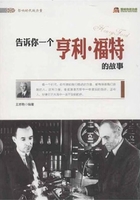THE PSYCHOLOGY OF THE REVOLUTIONARY ASSEMBLIES1.Psychological Characteristics of the great Revolutionary Assemblies.
A great political assembly, a parliament for example, is a crowd, but a crowd which sometimes fails in effectual action on account of the contrary sentiments of the hostile groups composing it.
The presence of these groups, actuated by different interests, must make us consider an assembly as formed of superimposed and heterogeneous crowds, each obeying its particular leaders.The law of the mental unity of crowds is manifested only in each group, and it is only as a result of exceptional circumstances that the different groups act with a single intention.
Each group in an assembly represents a single being.The individuals contributing to the formation of this being are no longer themselves, and will unhesitatingly vote against their convictions and their wishes.On the eve of the day when Louis XVI.was to be condemned Vergniaud protested with indignation against the suggestion that he should vote for his death; but he did so vote on the following day.
The action of a group consists chiefly in fortifying hesitating opinions.All feeble individual convictions become confirmed upon becoming collective.
Leaders of great repute or unusual violence can sometimes, by acting on all the groups of an assembly, make them a single crowd.The majority of the members of the Convention enacted measures entirely contrary to their opinions under the influence of a very small number of such leaders.
Collectivities have always given way before active sectaries.
The history of the revolutionary Assemblies shows how pusillanimous they were, despite the boldness of their language respecting kings, before the leaders of the popular riots.The invasion of a band of energumens commanded by an imperious leader was enough to make them vote then and there the most absurd and contradictory measures.
An assembly, having the characteristics of a crowd, will, like a crowd, be extreme in its sentiments.Excessive in its violence, it will be excessive in its cowardice.In general it will be insolent to the weak and servile before the strong.
We remember the fearful humility of the Parliament when the youthful Louis XIV.entered, whip in hand, to pronounce his brief speech.We know with what increasing impertinence the Constituent Assembly treated Louis XVI.as it felt that he was becoming defenceless.Finally, we recall the terror of the Convention under the reign of Robespierre.
This characteristic of assemblies being a general law, the convocation of an assembly by a sovereign when his power is failing must be regarded as a gross error in psychology.The assembling of the States General cost the life of Louis XVI.It all but lost Henry III.his throne, when, obliged to leave Paris, he had the unhappy idea of assembling the Estates at Blois.Conscious of the weakness of the king, the Estates at once spoke as masters of the situation, modifying taxes, dismissing officials, and claiming that their decisions should have the force of law.
This progressive exaggeration of sentiments was plainly demonstrated in all the assemblies of the Revolution.The Constituent Assembly, at first extremely respectful toward the royal authority and its prerogatives, finally proclaimed itself a sovereign Assembly, and treated Louis XVI as a mere official.
The Convention, after relatively moderate beginnings, ended with a preliminary form of the Terror, when judgments were still surrounded by certain legal guarantees: then, quickly increasing its powers, it enacted a law depriving all accused persons of the right of defence, permitting their condemnation upon the mere suspicion of being suspect.Yielding more and more to its sanguinary frenzy, it finally decimated itself.Girondists, Hebertists, Dantonists, and Robespierrists successively ended their careers at the hands of the executioner.
This exaggeration of the sentiments of assemblies explains why they were always so little able to control their own destinies and why they so often arrived at conclusions exactly contrary to the ends proposed.Catholic and royalist, the Constituent Assembly, instead of the constitutional monarchy it wished to establish and the religion it wished to defend, rapidly led France to a violent republic and the persecution of the clergy.
Political assemblies are composed, as we have seen, of heterogeneous groups, but they have sometimes been formed of homogeneous groups, as, for instance, certain of the clubs, which played so enormous a part during the Revolution, and whose psychology deserves a special examination.
2.The Psychology of the Revolutionary Clubs.
Small assemblies of men possessing the same opinions, the same beliefs, and the same interests, which eliminate all dissentient voices, differ from the great assemblies by the unity of their sentiments and therefore their wills.Such were the communes, the religious congregations, the corporations, and the clubs during the Revolution, the secret societies during the first half of the nineteenth century, and the Freemasons and syndicalists of to-day.
The points of difference between a heterogeneous assembly and a homogeneous club must be thoroughly grasped if we are to comprehend the progress of the French Revolution.Until the Directory and especially during the Convention the Revolution was directed by the clubs.
Despite the unity of will due to the absence of dissident parties the clubs obey the laws of the psychology of crowds.They are consequently subjugated by leaders.This we see especially in the Jacobin Club, which was dominated by Robespierre.
The function of the leader of a club, a homogeneous crowd, is far more difficult than that of a leader of a heterogeneous crowd.















